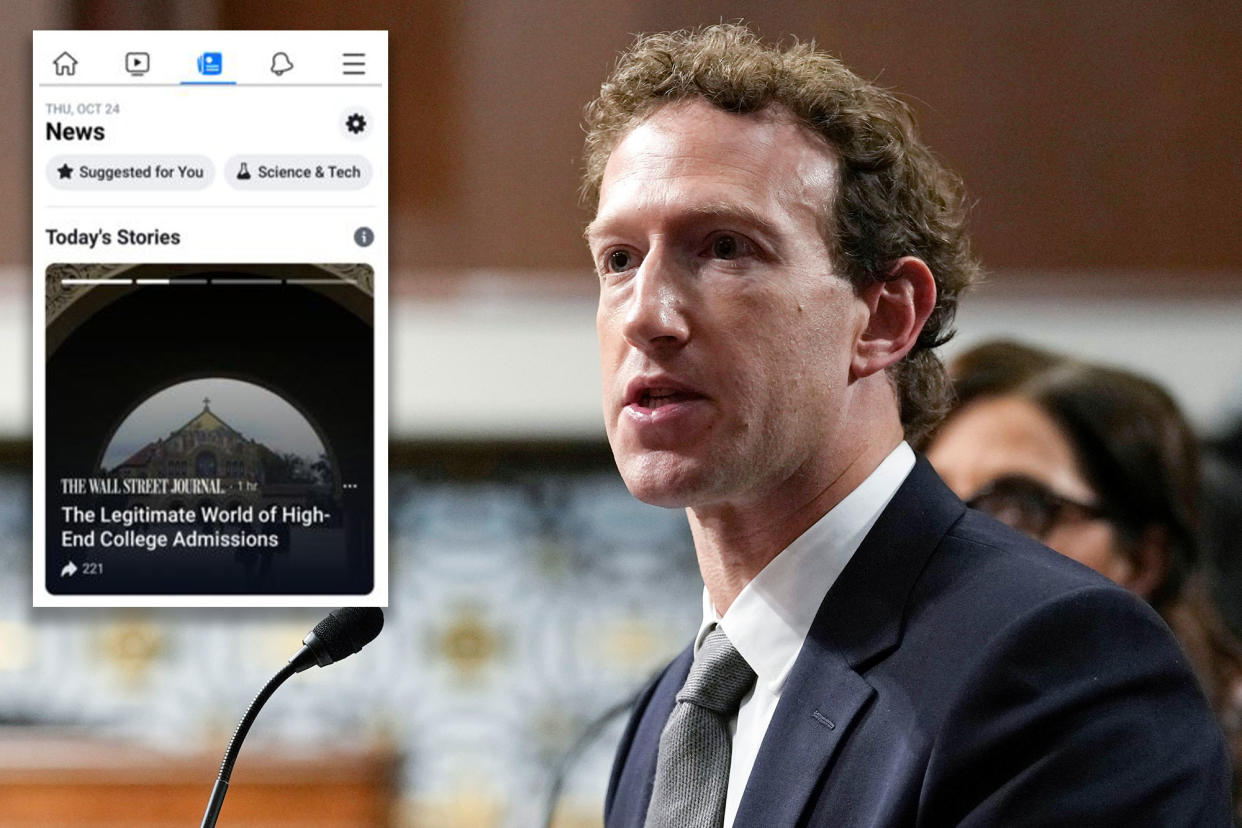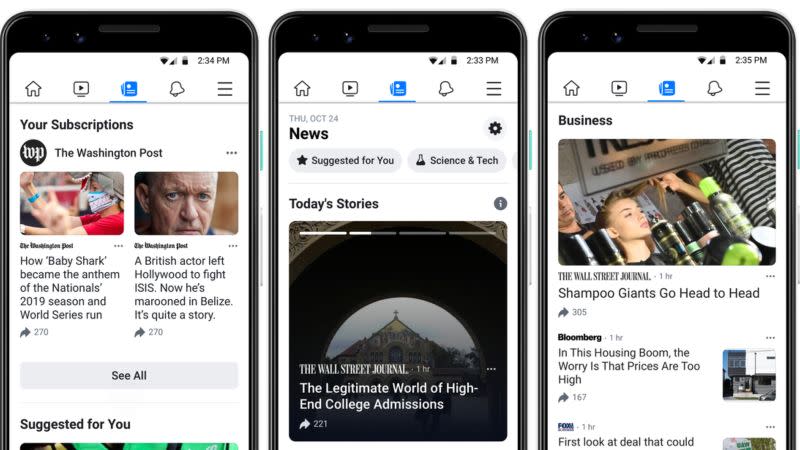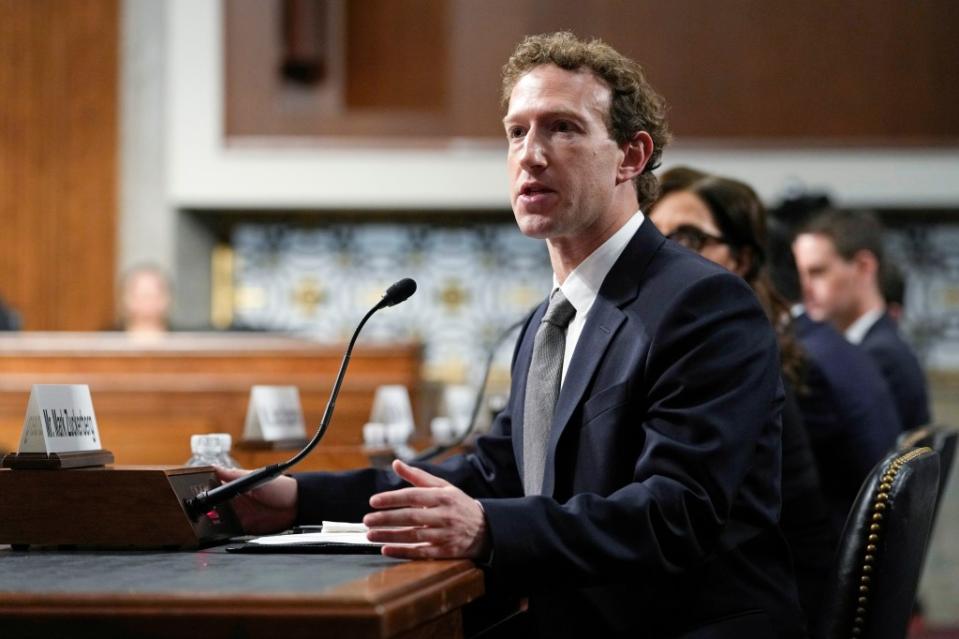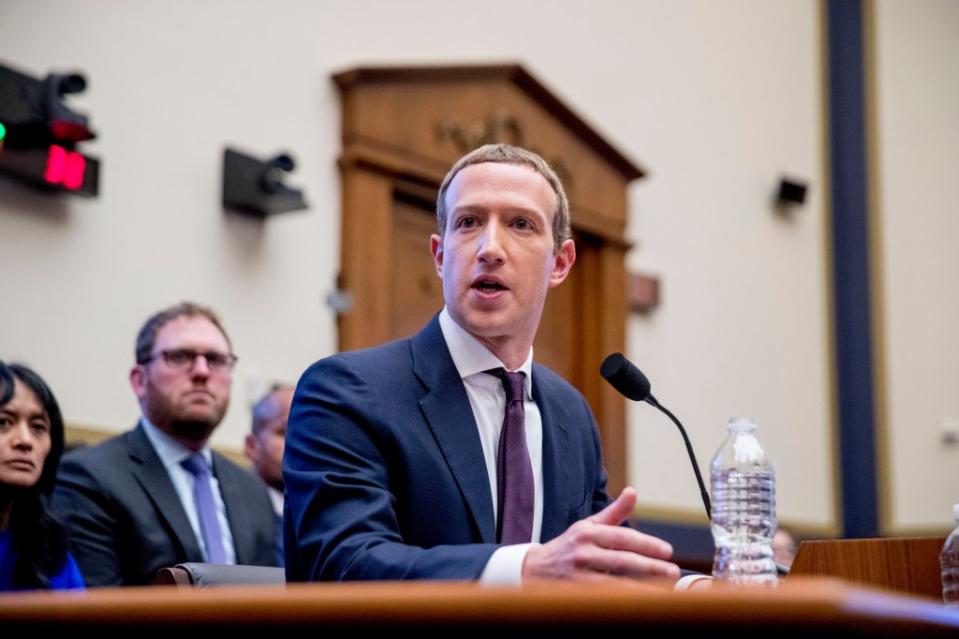Meta to scrap news feature for Facebook users in US in latest broadside to media companies

Meta said it will scrap Facebook’s news feature for US and Australian users in April – setting up a possible showdown with lawmakers in both countries who have ripped the tech giant’s treatment of the media industry.
Meta said in a blog post late Thursday it “will not enter into new commercial deals for traditional news content in these countries and will not offer new Facebook products specifically for news publishers in the future.”
Mark Zuckerberg’s social media giant said getting rid of Facebook’s “News Tab” was “part of an ongoing effort to better align our investments to our products and services people value the most.” The company said the number of people using the News Tab in both countries dropped by more than 80% in 2023.
“As a company, we have to focus our time and resources on things people tell us they want to see more of on the platform, including short form video,” Meta said in the blog post.

In the US, the removal of Facebook’s “News Tab” is the just the latest sign of pullback by Meta. In 2022, the company began telling US news publishers it would no longer pay for content and pulled all funding for the deals.
On Friday, News/Media Alliance, a nonprofit advocacy group that represents hundreds of news outlets, shredded Meta for ending the service.
“This is consistent with Meta practices around the world to distance itself from news content,” News/Media Alliance president & CEO Danielle Coffey said. “Seems to be a conscious decision to steer away from quality and towards misinformation.”
Meta informed outlets in Australia that it would not renew their deals at the same time the blog post went live on Friday, The Guardian reported. The country’s prime minister, Anthony Albanese, blasted Meta’s decision, telling reporters it was “not the Australian way.”
“We know that it’s absolutely critical that media is able to function properly and be properly funded,” Albanese said. “Journalism is important and the idea that research and work done by others can be taken free is simply untenable.”
“Nobody should be under any doubts about the government’s resolve to ensure that we have a viable media industry in this country,” added Australia’s assistant treasurer Stephen Jones.
The move came after Meta got rid of the News Tab in the United Kingdom, France, and Germany last year. Meta said the changes would “not impact the terms under our existing Facebook News agreements with publishers in Australia, France, and Germany,” and that its deal in the US and UK had already expired.
Executive chairman Michael Miller of News Corp Australia – which shares a parent company with The Post – said he welcomed “the government’s support for the Australian media industry and its wholehearted commitment to upholding our laws and the News Media Bargaining Code.”
“Meta is using its immense market power to refuse to negotiate, and the government is right to explore every option for how the Media Bargaining Code’s powers can be used,” Miller said.
“Meta is attempting to mislead Australians by saying its decision is about the closure of its news tab product, however the vast majority of news on Facebook and Meta is and will continue to be consumed outside this product,” Miller added. “Meta’s decision will directly impact the viability of Australia’s many small and regional publishers and this is a pressing issue for the government to confront.”

“We will work in any way we can to assist the processes the government is putting in place.”
The Post has reached out to Meta for further comment.
Media outlets will still have access to their Facebook pages and Meta’s products and services will otherwise be unaffected, according to the blog post. That means users will be able to view news articles within the Facebook app.
But the company has been criticized for years by government officials who say it hasn’t properly compensated the media industry for the traffic generated by its news content.
A recent study said that in a conservative estimate, Facebook should pay news outlets nearly $2 billion per year for their content based on its overall digital ad revenue, The Post reported last November. The same study found that Google should pay anywhere from $10 billion to $12 billion annually.

In 2021, Facebook signed a series of publishing deals after Australia passed a law requiring tech firms to negotiate with publishers. The company temporarily pulled news content from its platform before returning to the negotiating table.
Last year, Facebook discontinued the News Tab in Canada in response to a similar law.
Meanwhile, in the US, Meta threatened to pull news content for Facebook and Instagram users in California last year after the state advanced legislation that would require “online platforms” to pay a “journalism usage fee” to outlets whose content appears on their sites.
Facebook has pulled back from news services as it faces a wave of government scrutiny over its business practices – including its failure to protect kids from online horrors ranging from sexual exploitation to anxiety, depression and even suicidal thoughts.
The company has denied wrongdoing and touted various tools it has released to protect users.
The crisis led Sen. Lindsey Graham to declare at a high-profile Senate hearing earlier this year that Zuckerberg has “blood on his hands.”

